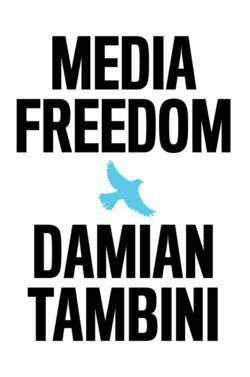Читать книгу Media Freedom - Damian Tambini - Страница 11
What Are Media?
ОглавлениеIf media, as the subject of liberty, enjoy privileges, then it is necessary for someone to decide who or what is or is not media: whether, for example, media privileges extend to bloggers, influencers or algorithms. But whoever defines who or what benefits from media privilege gains censorship power. In some cases, related questions, such as whether an activity is ‘journalism’ or ‘news’, are relevant to decisions about whether media privilege can be awarded,54 but the same problem arises. At the risk of overstating what is a general tendency rather than an absolute rule, US law tends to eschew distinction of media from other forms of speech, whereas human rights approaches embrace journalism or media privilege.
Similar principles apply to the question of whether messages generated by AI should enjoy speech or media rights. On the one hand, machines do not have any inherent rights to autonomy or self-expression because they lack an authentic self, and the potential for targeted communication to overwhelm an individual human’s information inputs is a new threat to human autonomy. But that is not to say that listeners or bystanders should not have the right to receive ideas disseminated by an automaton, or that the social value of democratic deliberation would not be served by nonhuman mediation. In many respects, however, there will be divergences. Data-driven AI permits the narrow and specific targeting of messages, which will give rise to a new ethics of propaganda: the targeting of limited and selected messages to individuals or narrow minorities raises the prospect of non-public mass communication. Contemporary concerns about fragmentation and filter bubbles are the tip of this normative iceberg. In time, a new ethics of communicative diversity and pluralism will be required to determine to what extent the privileges and duties of media should be enjoyed by AI.55
According to Harlem Desir, OSCE Special Representative on media freedom until 2020: ‘social media companies, search platforms and other internet intermediaries have responsibilities in dealing with problematic content, but they must not become the controllers of our fundamental human rights. We need to find the right balance in the demands to social media platforms . . . They are and should remain intermediaries, not publishers of every citizen’s opinions.’56
If media freedom matters – and the expanding universe of treaties, NGOs, IGOs and declarations focused on it suggests it does – then rules and codes which articulate and protect it must be based on an agreed definition of the media. Currently, they are not. The definition of ‘media’ will be essentially contested57 to the extent that media freedom engages special privileges and duties. A good deal of commentary – for example that of Kate Klonick58 – seeks to ask whether, on the basis of their current behaviour or performance, intermediaries such as internet platforms should be considered analogous to old media. An alternative approach would be to set out the privileges of media, and describe what intermediaries need to do in order to be considered media. This more ‘constructivist’ approach is adopted by the EU59 and the Council of Europe.60
